
Cet avis était-il utile?

Acting / Cast : a good acting, though some of the actors exageratted a bit when portraying their character
Music : typical music of korean drama, nothing special but not so bad either
Rewatch value : It's a good Story and have an unusual plot about reincarnation, but it is just like the detective drama, once you already know the main event it makes you not so much want to watch it anymore
Overall : good and unusual storyline, a good cast and characters, not so boring music, and it have a rewatch value, though not so much..
a much reccomended for me. ^^
Cet avis était-il utile?

Cette critique peut contenir des spoilers
Journey Through the Past (Lives)
Next can be considered a successful experiment in unconventional or ‘alternative’ scriptwriting in the endless world of Korean series, in that the usual narrative construction of dramas here finds happy intuitions capable of relaunching the unfolding of the events in an engaging and exciting manner, thanks to a skilful expedient that finds in the inclusion of elements of psychoanalysis, suggestive keys to readings linked to the profound and fascinating theme of reincarnation.Starting from a rather common plot, the fortuitous encounter between the eminent young surgeon Ki Beom (Ryu Soo Young) and the beautiful theatre actress Jung Hwa (Jang Shin Young), the immediate love at first sight that ensues triggers a whirlwind of events with a snowball effect that also involves the two's respective partners, psychologist Soo Hyun (Park Ye Jin), who has been engaged to Ki Beom since school, and Ki Soo (Lee Jong Soo), a fellow actor unluckily in love with Jung Hwa but - watch out! also younger brother of Ki Beom himself
Jung Hwa's frail state of health, prostrated by a debilitating condition that effectively prevents her from sleeping, leads the actress to the office of Dr. Lee Soo Hyun, a psychologist who, unaware that Jung Hwa and her partner Ki Beom have in the meantime fallen in love, takes the patient to heart and, through repeated hypnosis sessions, manages to bring out what appears to all intents and purposes to be a case of reincarnation from past life experiences...
Almost as in certain Hollywood movies of the 1940s, or as in the coeval productions of the British company Gainsborough, where the main characters find themselves ‘’trapped‘’ between dream and reality, past and present, through the very fascinating element of psychoanalysis and hypnosis, the spectator finds himself catapulted into the previous lives of the four protagonists, thanks to another successful writing device, i.e. the inclusion of a story within a story, a movie within a movie, practically whole episodes, that will reveal the destinies of the characters' previous lives, through the different centuries and in the most varied sentimental concatenations.
A journey through the past, into different historical epochs such as the Mongolian invasion, the Joseon dynasty, the 20th century Japanese occupation, etc., where the ineluctability of fate will put the lives and loves of the characters to the test; The viewer is also left with the pleasure of choosing which moment in history has the most fascinating plot. Personally, the 13th-century segment with the ferocious Mongolian invasion (and a truly stunning Park Ye Jin!) and the 1900s under Japanese occupation, which is really beautiful thanks to the touching performance of the excellent Jang Shin Young, are among my favourites, while the last one, although it has a good initial idea, is a little more mechanical in its development.
Jung Hwa's inner voyage also involves the psychologist Soo Hyun who, inevitably overwhelmed by events, faces a process of self-discovery, resulting in an exploration of the unconscious, as if we were in an Ingmar Bergman or Robert Altman movie, which can bring about inevitable consequences...
The drama is also rich in recurring elements and symbolism (in addition to a particular figure that appears at certain times in front of the characters) such as the small mirror, representative of various metaphors and allegories, but also the principal instrument of female beauty and vanity, and the ancient knife, a death-bringing item that, on several occasions, becomes a ‘tool’ capable of triggering or determining the events of the stories themselves...
It has to be said that the quartet of performers is decidedly on form and offers truly remarkable characterisations; the two leading actresses manage to provide a great acting performance, truly multifaceted, capable of alternating moods and states of mind depending on the moments and perfectly in line with the development of the story; Park Ye Jin and Jang Shin Young are decidedly excellent both in the ‘contemporary’ roles and in the ‘historical’ segments.
On the other hand, Ryu Soo Young is particularly able to make the character of the surgeon Ki Beom complex, decidedly tormented by doubts, remorse, guilt, and so on, while Lee Jong Soo is very skilled in giving a nervous, even uncomfortable interpretation of the actor Ki Soo, with a strongly impulsive character and also decidedly tormented by his brother's relationship...
The brilliant ending, which, I imagine, must have displeased many, definitely breaks with the classic drama trend, but is in my opinion the only really possible one in terms of coherence and narrative logic.
The music is beautiful, providing just the right emotional soundtrack to a truly engaging and well executed story. In my opinion, this is an ‘8’ drama, which stands the test of time (obviously if you ignore the dresses, the phones and Ryu Soo Young's peculiar Tom Cruise haircut) and deserves its place on the roster of dramas to be rediscovered...
Cet avis était-il utile?

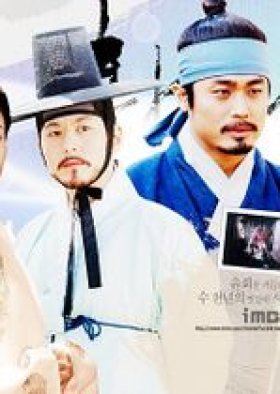





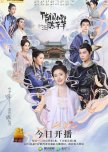
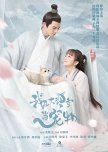
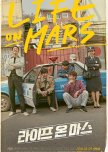
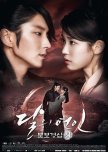
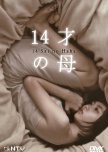
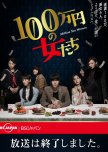

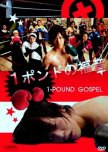
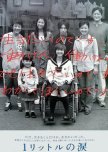
![Great Korean Empire [1897 - 1910] - (movies & dramas)](https://i.mydramalist.com/Q227gt.jpg)
![Great Korean Empire [1897 - 1910] - (movies & dramas)](https://i.mydramalist.com/4ew2Jt.jpg)
![Great Korean Empire [1897 - 1910] - (movies & dramas)](https://i.mydramalist.com/lBdZJt.jpg)
![Great Korean Empire [1897 - 1910] - (movies & dramas)](https://i.mydramalist.com/Jx3wwt.jpg)
![Great Korean Empire [1897 - 1910] - (movies & dramas)](https://i.mydramalist.com/Vbo3zt.jpg)
















